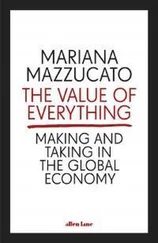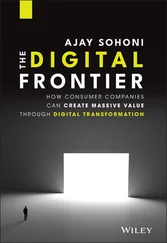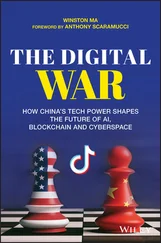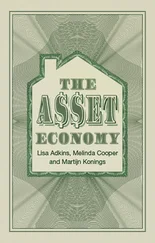What is the standard that would allow the classification of companies as digital? Making the numbers speak is not easy because the skills required to manipulate them are not always the same as those needed to give them a framework which creates their voice. And it is that framework that is missing. In short there is a definitional problem; neither the OECD nor the existing economic sectoral categories answer the core question: how is the economic practised in such a way that it might be considered digital?
While there is a significant populist literature on the digital economy, this work is light on theorisation of what constitutes digital economic practice. The work of Tapscott is perhaps the most famous here, in particular his book The Digital Economy . First published in 1995 and updated twenty years later, this was originally, and remains, a series of anecdotes in search of a theory, offering no real framework or appreciation of what the digital economy might mean other than having something to do with computers, the internet and money (Tapscott 2015). A number of Marxist theorists have argued that the digital economy is based on a new type of rent or on the extraction of surplus value (the latter particularly in relation to free labour). These arguments will be returned to in Chapter 7, as there are some useful ideas here, but because it posits the same capitalism operating across all sectors, the Marxist attempt to understand a digital sector presupposes that surplus value or rent will be found to be the sources of profit and the drivers of economic activity. As such, this is not so much a theory of the digital economy as a presumption that extending Marxist economics to digital interactions will be sufficient to theorise that economy (Fuchs 2014; Dean 2012). Zuboff (2019) claims a new stage in capitalism that succeeds the Fordist period has arisen with digital technologies. Her account will also be drawn on but because it focuses entirely on the economic practices associated with advertising online and does not examine other potential economic practices it is a restricted view. Her claim that there is a ‘surveillance capitalism’ – echoing Balkin (2008) and others who have identified the rise of the ‘surveillance state’ – accordingly both assumes the digital economy has restructured the whole economy and limits what practices might make up the digital economy to those Google relies on (meaning also that surveillance and advertising developments in the digital and the internet prior to Google are not given appropriate attention, as they are for example in Turrow’s (2011) work).
What the problem of statistics makes clear is that a theory encompassing and connecting the elements of the digital economy and defining its specificity is missing. The remainder of this book will take up the task of providing such a theory, beginning with a clearer articulation of the question being asked.
Digital Economic Practices
A starting point is the work already built up in the related areas of cultural economy and of creative economy and cultural industries. While some distinctions may be drawn between them, for the purposes of relating to the digital economy their key innovations are similar enough to be taken together, just as are their key weaknesses. Where cultural economy addresses the cultural dimensions of all economic activity, work on the cultural and creative industries addresses those industries that have creativity at their core. Both then address culture in economic settings and read this as requiring attention to specific kinds of activities. As Pryke and du Gay argue: ‘Common to those within the broad church of cultural economy is therefore a shared focus on (material) practices, orderings and discourses which produce economically relevant activity’ (2007: 340).
What is helpful here is the initial point that identifying an economy will involve the identification of practices and culture. An economic sector, then, may be understood as having at its core cultural and social practices that constitute the production, exchange and consumption dynamics specific to that sector. However, the quotation from Pryke and Du Gay also throws up a key issue, not so much for cultural economy or creative industries work, but for the present argument, because following this idea of defining a sector also entails working out what ‘economy’ and ‘practice’ mean (Amin and Thrift 2004). The project of analysing the digital economy becomes one of building an understanding of whether there are any particular digital economic activities and, if so, what constitutes them. The aim here is not grand, in the sense of arguing that analysis of economic life should all be based on economic practices, but rather is specific; the argument is that to understand a new region of economic life looking at how it is lived and practised is an important way to grasp it. In the following chapters this will be done through a series of case studies focusing on particular digital economic practices. To undertake these studies we first need an understanding of ‘economic practice’.
Practices are the repeated actions taken to construct everyday life-worlds, or what Schatzki calls ‘a nexus of doings and sayings’ (cited in Reckwitz 2002: 250). While practice as a concept is often closely associated with Bourdieu, Schatzki and others (Bourdieu 1977; Schatzki 2008; Cetina et al. 2005), one way of applying such ideas to digital economics is to draw a parallel with Couldry’s attempt to use the sociology of practice to change how media is studied. Couldry sought to move media studies from a study of texts and effects toward a study of media practices; in doing so he emphasised three things. First, in the analysis of practice, culture is recentred on routine, often unconscious, actions and on the structures of meaning that allow something to be said (rather than on the thing said). Second, the analysis is open to following what people are doing in relation to media, and should not presume prior existing categories of media, such as ‘the audience’. Finally, there is a focus on the kinds of practices that produce categorisations or identities that are enduring (Couldry 2004: 121–2).
The value of practice theory … is to ask open questions about what people are doing and how they categorise what they are doing, avoiding the disciplinary or other preconceptions that would automatically read their actions as, say, ‘consumption’ or ‘being-an-audience’, whether or not that is how the actors see their actions. (Couldry 2004: 125)
While Couldry here addresses media, his focus on following the routine, the everyday and repeated actions and the meanings of and within media is strongly indicative of the way I wish to use ‘practice’ to open up the phenomena of the digital economy. In this regard, a cognate conceptual ally is the feminist materialist focus on the ‘trouble’ or the ‘mess’ of life. As with Couldry’s extensive work, there is insufficient space here to outline all that is relevant, but it is worth noting the connection here to Haraway’s notion of the ‘trouble’ inherent in becoming-with each other, from microbes to humans. As she says when discussing partners in making life’s troubles: ‘The partners do not precede the knotting’ (Haraway 2016: 13; see also Barad 2007).
In the following chapters, practices are understood as entanglements of meaning and action in which various actors appear and are formed, or disappear and are deformed, and which are in some sense repetitive, iterative and patterned. ‘A “practice” (Praktik) is a routinized type of behaviour that consists of several elements’ (Reckwitz 2002: 249). We might think of practices as habits, like using an ATM to obtain cash, or clicking to register our agreement to an end-user licence online; in such ways we become habituated in the habitus. ‘The paradox of habit’, as Deleuze puts it, ‘is that it is formed by degrees and also that it is a principle of nature … The principle is the principle of contracting habits’ (1991: 66). Habits and repetitions are important because if a set of meanings and actions is simply a one-off then it does not form a practice; the principle of habit and iteration is that it forms habits by degrees. If practice seems to focus on meaningful actions then the latter are meaningful only because they have been replicated in order to be part of a practice. 4
Читать дальше












